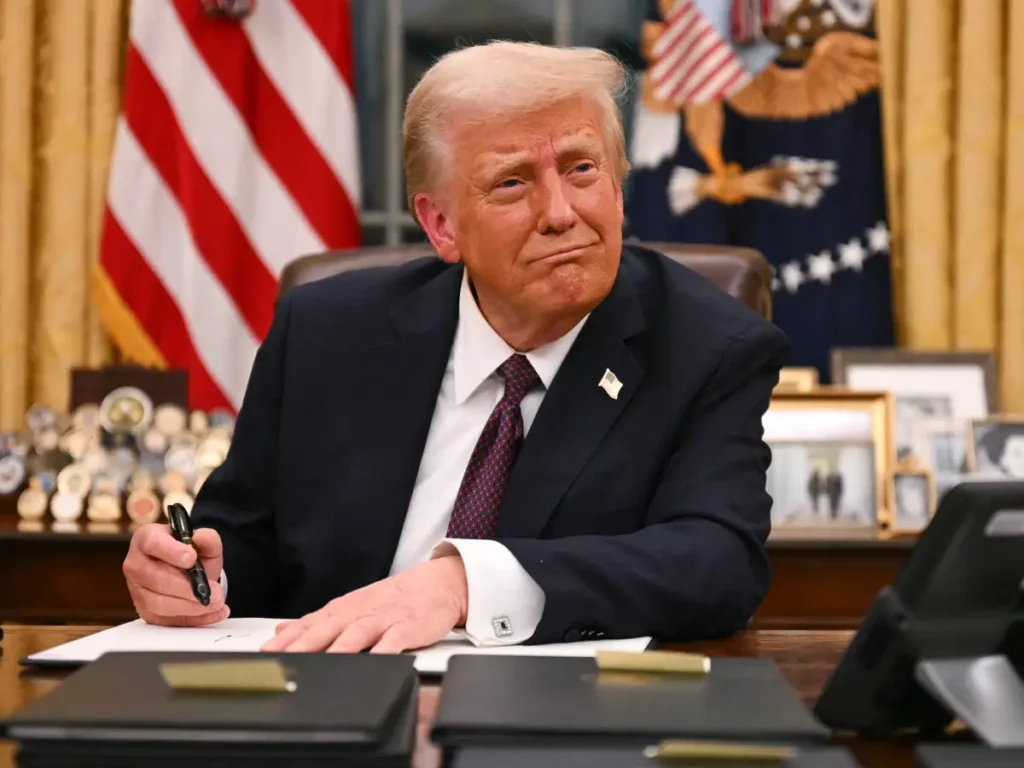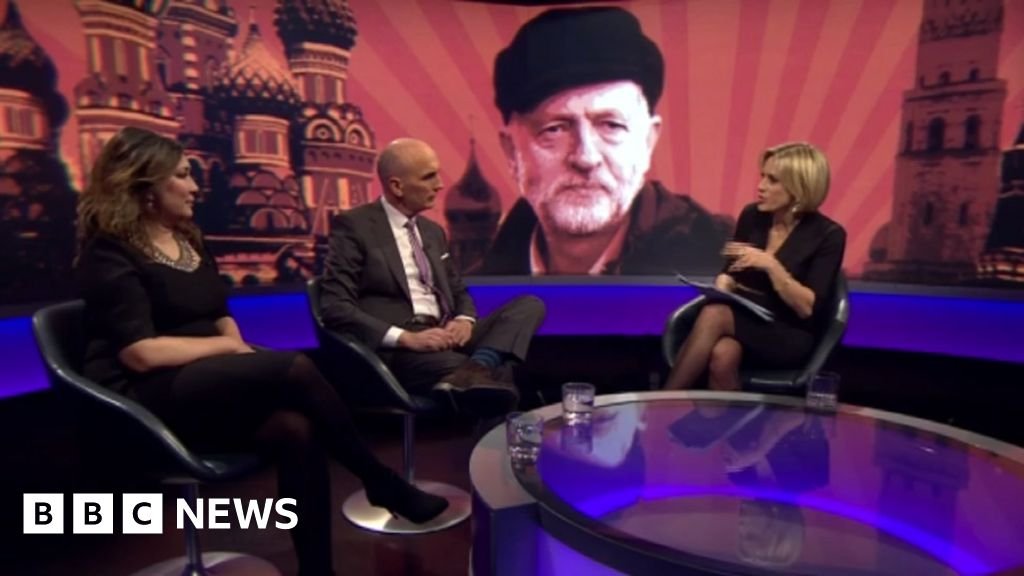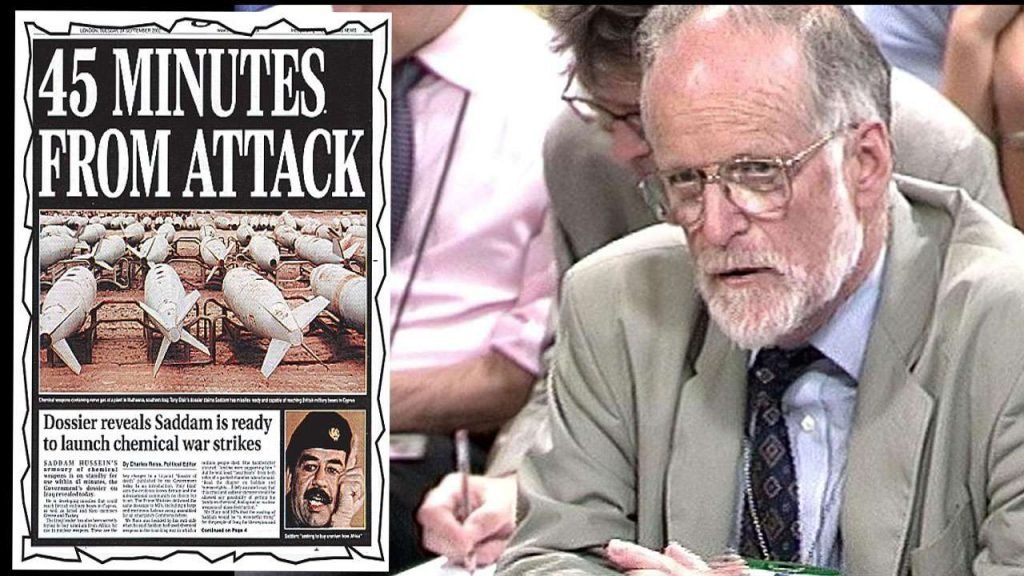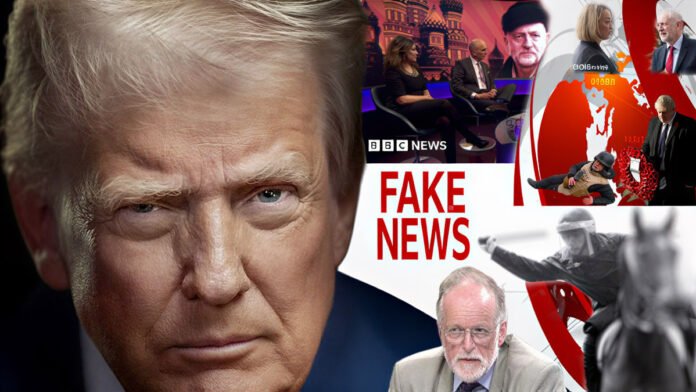Editorial Meltdown: Can We Still Trust the BBC? The Trump Edit Scandal Says Otherwise
The BBC has issued a formal apology to Donald Trump after a Panorama documentary was found to have spliced together separate parts of his 6 January 2021 speech, creating what the corporation now admits was a “mistaken impression” that Trump had urged violent action. But while the BBC has expressed regret and pulled the 2024 program from broadcast, it is refusing Trump’s demand for compensation, ensuring the matter will remain in the courts and the headlines.
The bigger question is how a public broadcaster, funded by millions of license fee payers and charged with the sacred duty of impartial journalism, manages to hand one of democracy’s most dangerous demagogues a propaganda victory. The answer, it turns out, is as simple as it is damning: by doing precisely what Trump has always accused the media of doing. The BBC’s splicing of Donald Trump’s speech represents something far worse than mere editorial sloppiness.
In compressing more than 50 minutes of rambling oratory into a few seconds of damning footage, Panorama created the very fake news that Trump has spent years claiming exists. Where Trump said, “We’re going to walk down to the Capitol, and we’re going to cheer on our brave senators,” the BBC showed him segueing immediately into “And we fight. We fight like hell.” The edit transformed a speech that was already reprehensible into something even more directly incendiary, and in doing so, gifted Trump the ultimate vindication: They proved him right…it’s fake news! Worse still, the emergence of a second misleading edit, this one from a 2022 Newsnight broadcast, suggests we are not dealing with an isolated lapse but with a systemic problem.
The question then becomes: How many other clips have been massaged to fit a predetermined narrative? How many other subjects, lacking Trump’s resources and platform, have been similarly misrepresented without recourse? The BBC demands we trust its editorial judgment, yet that trust has been squandered through arrogance and carelessness. What makes this scandal particularly galling is that it plays directly into the populist narrative that has fuelled the political right on both sides of the Atlantic.

For years, figures like Trump and Nigel Farage have claimed that the mainstream media is not merely biased but actively dishonest, willing to manufacture evidence to suit its liberal prejudices. For years, critics have countered that while media outlets certainly have biases, they remain fundamentally committed to factual accuracy. The BBC has now proved the populists right, and in doing so, has made the work of defending honest journalism immeasurably harder. In light of this systemic failure, the corporation’s refusal to pay compensation, while legally defensible, rings hollow when accompanied by such a tepid apology.
The BBC admits it created a “mistaken impression” that Trump made a “direct call for violent action.” This is bloodless language for what amounts to falsification. The edit did not merely create an impression; it created a new reality, one that never occurred. If the BBC genuinely regrets this, it should demonstrate that regret through accountability, not semantic evasion.
But accountability, of course, is not how British institutions function. The management will resurface in comfortable sinecures. The journalists responsible for the edit will likely face no consequences beyond private embarrassment. The BBC will issue new guidelines, convene editorial review boards, and promise that lessons have been learned. And then, in a few years, when the scandal has faded from memory, it will do something similar all over again. This is the pattern of institutional failure: acknowledge, apologise, repeat. It is for this very reason, the lack of genuine accountability, that the political left should be leading the condemnation of this scandal, not making excuses for it.
The left has suffered years of the BBC issuing bias and “fake news” that presented the working class in a bad light, from Orgreave to Hillsborough, and the manipulation of Corbyn in front of the Kremlin. Our critique of Trump does not depend on manufactured evidence; it rests on his actual record of racism, misogyny, corruption, and contempt for democratic norms. By tolerating or minimising the BBC’s malfeasance, we surrender the moral high ground and validate the right’s claims of media persecution. Worse, we betray the very principles of truth and accountability that must underpin any progressive politics worthy of the name. The BBC was established to serve the public, not to manipulate it.
📜 A History of Editorial Manipulation: The BBC’s Legacy of ‘Fake News’

The recent controversy over the BBC’s manipulated editing of Donald Trump’s speech is not an isolated incident of “sloppiness,” but the latest chapter in a long history of institutional bias and editorial framing. This pattern of manipulation and selective reporting, which critics label as “fake news,” stretches back decades, demonstrating that the problem is deeply ingrained in the public broadcaster’s culture.
The Precedent: Framing the Narrative
For critics of the BBC, its institutional bias has long served as “the velvet glove over the establishment’s iron hand.” This is underlined by the historical fact that its former Director-General, Tim Davie, was a former Conservative Party official. The practice of using selective editing to shape public opinion is not new, and its most potent historical examples include:
- 1984–85 Battle of Orgreave: During the miners’ strike, the BBC’s coverage was heavily criticised for allegedly reversing footage to suggest miners initiated the violence by throwing missiles before the police charge, rather than in response to it. Although the BBC later stated its investigations found “no evidence of any deliberate attempt to mislead,” it admitted some violence went unrecorded due to “camera error,” and the damage to the narrative was done. The fact is again, they switched and edited the sequence of events, the police attacked the miners, not the other way round…
- 2003 Hutton Inquiry: The BBC faced intense scrutiny following the death of Dr David Kelly, a government scientist, and its reporting of the “sexed up dossier” claims regarding Iraqi weapons of mass destruction. The Hutton Report strongly criticised the corporation’s processes and editorial standards, leading to the resignation of the BBC’s Director-General at the time—a clear sign of a profound institutional failure.
- The Corbyn Campaigns: More recently, the BBC’s relentless campaign against Jeremy Corbyn, the former Labour leader, included the infamous Newsnight incident where he was shown in front of a Kremlin/Moscow backdrop in a graphic that critics argued was an intentional smear to portray him as a “Soviet stooge.”
- Laura Kuenssberg’s continued misrepresentation of Jeremy Corbyn. The broadcaster’s regulator concluded that a Laura Kuenssberg report for the News at Six in November 2015 breached the broadcaster’s impartiality and accuracy guidelines, in a ruling that triggered an angry response from the corporation’s director of news.

The Current Crisis: The Trump Vindication
The Trump speech edit scandal fits squarely into this legacy of editorial manipulation. The edit, which spliced the President’s words to create a “mistaken impression” of a direct call for violent action, provided the former President with the ultimate vindication: they proved his accusations of media dishonesty right.
Whether it’s reversing footage to frame striking workers, exaggerating intelligence claims, or photoshopping politicians onto foreign skylines, the BBC has spent years manipulating, chopping, and exaggerating to frame the story in its preferred way. This is not impartiality; it is, quite clearly, institutional bias.
This video looks at the long-term struggle for justice related to one of the BBC’s most controversial historical editorial decisions, where critics alleged the corporation reversed footage to frame striking miners: Inquiry launched to ‘uncover truth’ behind bloody clashes at Orgreave miners’ strike.
The BBC exists because a democratic society requires a source of reliable information, free from both state control and commercial pressure. When it fails this basic test, it does not merely damage its own reputation; it corrodes public trust in the very concept of journalistic truth. And without that trust, without a shared sense that facts matter and can be verified, democracy itself becomes impossible. Trump is a symptom of this deeper crisis, not its cause.
He thrives in an environment where truth has become tribal, where people believe what confirms their existing views and dismiss everything else as propaganda. The BBC’s edit, far from combating this post-truth politics, has accelerated it. Every Trump supporter who already believed the media lies about him now has proof. Every person who defended the BBC’s integrity now looks credulous or complicit. The damage will endure long after this specific scandal has been forgotten. The BBC has apologised to Trump, which must have caused acute discomfort to everyone involved. But the apology that matters, the one that has not been issued, is to the British public.
We are the ones betrayed by this edit, we are the ones who fund the BBC’s operations, and we are the ones left to navigate a media landscape now more polluted by distrust. We deserved better. We still do. In the end, the BBC has achieved something remarkable: it has managed to make Donald Trump, a man whose relationship with truth is so casual as to be non-existent, into a victim of media dishonesty. This is not merely a failure of journalism. It is a masterclass in how institutions destroy themselves, one careless edit at a time. The only question now is whether anyone at the BBC has learned anything from it, or whether we are simply waiting for the next scandal to confirm what we already suspect: that the people in charge care more about their narratives than our trust, and that when forced to choose between accuracy and impact, they will choose wrongly every single time.
Support Independent Journalism Today
Our unwavering dedication is to provide you with unbiased news, diverse perspectives, and insightful opinions. We're on a mission to ensure that those in positions of power are held accountable for their actions, but we can't do it alone. Labour Heartlands is primarily funded by me, Paul Knaggs, and by the generous contributions of readers like you. Your donations keep us going and help us uphold the principles of independent journalism. Join us in our quest for truth, transparency, and accountability – donate today and be a part of our mission!
Like everyone else, we're facing challenges, and we need your help to stay online and continue providing crucial journalism. Every contribution, no matter how small, goes a long way in helping us thrive. By becoming one of our donors, you become a vital part of our mission to uncover the truth and uphold the values of democracy.
While we maintain our independence from political affiliations, we stand united against corruption, injustice, and the erosion of free speech, truth, and democracy. We believe in the power of accurate information in a democracy, and we consider facts non-negotiable.
Your support, no matter the amount, can make a significant impact. Together, we can make a difference and continue our journey toward a more informed and just society.
Thank you for supporting Labour Heartlands









